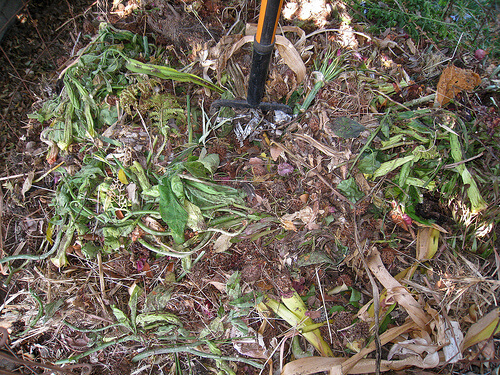Posted on 09/21/16 by Simply Organic Turf Care

Composting is nature’s way of replenishing her soil with vital organic matter. However, all household waste is not ideal for your compost pile. The basic ingredients for home composting are food scraps and yard waste. Keep your compost healthy by avoiding these potentially harmful materials.
- Trash from your vacuum cleaner is full of fake fragrances from candles and household sprays, pesticide residue and flame-retardants found in furniture and draperies. Shredded leaves and grass clippings are a much healthier alternative.
- Leftover home improvement materials are laced with toxins. Drywall is manufactured with waste from coal-fired plants. Sawdust is an option when the wood has not been painted or treated with chemicals. Use sawdust cautiously as it can impede the release of nitrogen.
- Drought tolerant weeds can quickly invade the compost which could be reintroduced to gardens. Drying weeds before adding to the compost pile impedes procreation.
- Glossy paper, including magazines, wrapping paper and printed cards, may contain ink with metals. Cardboard is acceptable in small amounts as long as it is not treated with ink.
- Dryer lint is filled with plastic particles, chemicals from detergents and fabric softeners and phthalates that should be tossed into the trash. Faded blooms and yellowing leaves are just right for the compost pile.
- Bacon fat, oils and grease smell like food to animals and other four-legged pests. Eggshells and vegetable scraps buried at least three inches in the pile will not attract animals.
Soil building through composting is a win/win scenario. In addition to saving money and reducing your impact on the environment, composted soil is a rich and nutritious addition to your organic lawn care. Knowing what to add to your compost will give you healthy soil for years to come.
photo credit: NOOOOOOOOOOOOOO!!!!! via photopin (license)

